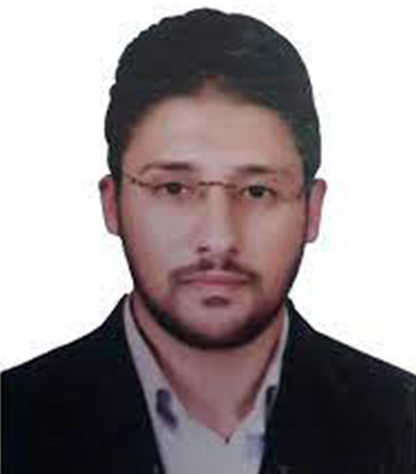During the past decade, Moscow has increased its involvement in the Middle East, in part motivated by its wish to project a more global role, and to stand up to what it views as Western interventions in areas it considers part of its vital sphere, such as Georgia and Ukraine. Middle Eastern crises played an important role in allowing Russia to circumvent the West’s attempts to isolate it, and the sanctions imposed after the annexation of Crimea. As tensions between Russia and NATO escalate over Ukraine, the Middle East once more becomes an arena in which Russia’s complicated relationship with the West plays out.
Tensions over Ukraine have been escalating to a significant degree. On November 30th, the North Atlantic Treaty Organization (NATO) warned Russia that it would “pay a heavy price if it invades Ukraine.” This warning followed declarations by Ukraine’s Foreign Minister Dmytro Kuleba that Russia had mobilized 115 thousand soldiers on its borders with Ukraine, in the Crimea region, as well as in the regions under the control of separatists in the east of the country. The Foreign Minister called on Western countries to intervene immediately to “rein in Russia.” US reports in December revealed that Moscow had mobilized about 175,000 soldiers to carry out a possible invasion of Ukraine at the beginning of the new year.
In what some viewed a deliberate invocation of the cold war, US Defense Secretary Lloyd Austin declared, on December 2nd, that the best-case scenario would be not to witness an incursion from the “Soviet Union” in Ukraine. Others however, considered his reference to the Soviet Union as merely an unintended mistake. On his part, Russian President Vladimir Putin declared on November 30th, that the military exercises being conducted by Western countries and the Ukraine threaten Russia’s security. He warned against crossing the Kremlin’s “red lines”.
As a result of these tensions, the Middle East has once again become an arena for confrontation between Russia and the West. While Russia has strategic interests in the region, the Ukrainian issue makes it even more important. Its involvement in the Middle East gave Russia an opportunity to break the diplomatic isolation Western countries imposed on it following the annexation of Crimea in 2014. But more importantly, the concept of ‘sphere of influence” is at play in explaining the importance of the Middle East to Russian foreign policy. Russia has invoked this concept with respect to neighboring countries that once were part of the Soviet Union. Western intervention in Ukraine is viewed by Moscow as an unacceptable political attack on vital Russian interests. This in turn requires, from its perspective, a Russian response against Western interest in regions the West considers to be part of its sphere of interests, such as the Middle East.
Russia is therefore likely to double down on its involvement in the Middle East, using many of the tools it has employed in recent years, including:
links to anti-West forces: Establishing links with anti-Western forces in the region is an approach that Moscow hopes will enhance its presence in the Middle East. In this context, Russia for example maintains links to Hezbollah and has hosted its leadership, including a visit by a Hezbollah delegation to Russia on March 14th, headed by Representative Muhammad Raad who met Russian Foreign Minister Sergei Lavrov. Although not many details about the visit were divulged, Raad stated at the time that the visit encompassed “discussing developments in the region and Lebanon, and how to stabilize the region and prevent any one power, through its support of terrorism, from controlling the fate of the peoples of this region.”
Strong relations with Iran: Although it is difficult to describe Russian-Iranian relations as a solid alliance, there are common interests that drive them to maintain closeness and overcome differences between them. The two countries cooperate in Syria, and Tehran has found in its relations with Moscow an opportunity to break out of its own international isolation. There are also reports that Russia has played a role in strengthening Iran militarily. Moscow, on its part, has used its relationship with Tehran to build an axis with Syria, aimed at consolidating Russian presence in the region. There are reports that Russia’s positions in the Vienna nuclear talks are closer to Iran’s, and it has taken a lenient stance towards Iran’s continued violations of uranium enrichment. Moscow also opposes the US position on limiting Iran’s missile capabilities and containing its regional interventions and rejects US demands to include these points in the negotiations with Iran.
Tensions between Russia and the West over Ukraine may lead to stronger relations between Moscow and Tehran, especially given both countries aim to reduce Western, and specifically American, influence in the region.
Supporting the Syrian regime: Russia’s intervention in the Syrian conflict marked a fundamental turning point in the conflict. But while this intervention was linked to a set of Russian strategic interests, it also came as a response to Western stance in Ukraine. As the West, in the earlier stages of the Syrian conflict, sought to overthrow the regime of Bashar al Assad, Russia’s intervention in the regime’s favor proved its ability to disrupt Western plans.
Russian arms deals: Russia has worked to conclude several major arms deals in the Middle East, as a way to apply pressure on the West. For example, Russia deployed advanced weapons in Syria, such as the Pantsyr short-range air defense system. It also concluded a deal for the S-400 missile defense system with Turkey, which caused tensions with NATO countries, who objected to a member country deploying a Russian missile defense system. Despite these objections, especially from the US, Turkish President Recep Tayyip Erdogan declared, after meeting with President Putin on September 30th, that Turkey would be looking to further cooperation with Russia regarding defense industries, such as aircraft engines, combat aircraft and submarines. Some reports indicated that Erdogan proposed during the meeting to work with Russia to build two more nuclear-powered power stations, and that President Putin proposed the development of space rocket launching platforms.
Sidelining the West on regional issues: Through its involvement in regional crises, Moscow competes with western influence in the region, as it has done in Libya and Syria. From the same perspective, Russia is trying to find a role in the Lebanese crisis, establishing links with various Lebanese political forces. Moscow takes advantage of any available opportunity to emphasize the difference between its own role and the US role in Lebanon. This was highlighted in the statements made by former Russian ambassador to Lebanon Alexander Zasypkin on June 29th, 2020, in which he criticized the US ambassador to Lebanon, Dorothy Shea for her statements accusing Hezbollah of “swallowing billions of dollars from state funds.” The Russian ambassador at the time took advantage of those statements to criticize US’s role in in Lebanon, stating that “Washington holds Hezbollah responsible for corruption, the economic impasse, the banking system crisis, the customs and border crossings situation, while we all know that the financial and economic reality in Lebanon is greatly affected by American sanctions and restrictions on remittances, especially since Washington controls the dollar and the management of global financial affairs”
As the crisis in Ukraine continues, Russia is likely to double down on its efforts to strengthen its presence in the Middle East, and to support parties that oppose Western interests and policies in the region. Russia’s support will therefore provide these anti-West forces with a wider margin of maneuverability in the near future.


